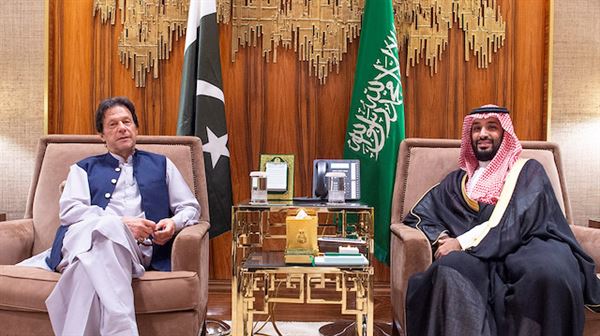Pakistani Prime Minister Imran Khan on Wednesday hailed a power-sharing deal inked between the Yemeni government and southern separatists as “a
Pakistani Prime Minister Imran Khan on Wednesday hailed a power-sharing deal inked between the Yemeni government and southern separatists as “a crucial and important step” toward bringing peace and security to the war-torn country.
“Pakistan welcomes the conclusion of the landmark Riyadh Agreement, as a result of the initiative taken by the Saudi leadership and support by UAE Government. We believe it is a crucial and important step forward towards a political solution and durable peace & security in Yemen,” Imran Khan said on Twitter.
Saudi Arabia on Tuesday sealed a deal between the Saudi-backed government and southern separatists to end a power struggle that had opened a new front in the multi-faceted war and risked further fragmenting Yemen.
Separatist forces – supported by Riyadh’s main coalition partner the United Arab Emirates – are part of the alliance but have a rival agenda to the internationally recognised government of Abd-Rabbu Mansour Hadi that was ousted from power in the capital, Sanaa, by the Houthis in late 2014.
The Southern Transitional Council (STC), which seeks self-rule in the south and wants a say in Yemen’s future, turned on Hadi in August after accusing the Islamist Islah party allied to him of complicity in a Houthi missile attack on its forces.
The agreement states that STC shares half of portfolios of the Cabinet that should not exceed 24 ministers and ensures its participation in the government delegation for consultations on the final political solution with Houthis rebel group.
The deal also states that all forces that moved toward Aden, Abyan and Shabwah since the beginning of August will return to their bases and be replaced by local security forces within 15 days.
Yemen has been beset by violence and chaos since 2014, when Houthi rebels overran much of the country, including Sanaa. The crisis escalated in 2015 when a Saudi-led military coalition launched a devastating air campaign aimed at rolling back Houthi territorial gains.
Since then, tens of thousands of Yemenis, including numerous civilians, are believed to have been killed in the conflict, while another 14 million are at risk of starvation, according to the UN.
